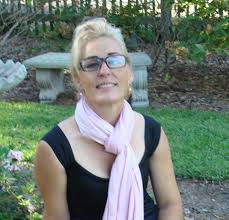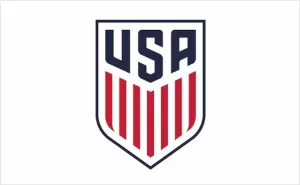By Deborah Desilets, Tallahassee based Author/Historian/Architect
I was raised in Tallahassee Florida, 6 miles down from the State capital on a section of farm land where the red clay road met Hwy 27 and the backyard bordered on the swampy edge of the Old Spanish Trail. The cow pastures beyond in all directions let me know I was on a farm. Mother let me roam these haunts and soon I walked to Nichols store where I could better see the road—feel her energy—and view license plates that held place names that became a living geography for me. People came here on a shared road like mine. And on that road people smiled waved blew a horn to my wave or gesture. The roads were alive and electric, they held energy. And I wondered – How did all these roads come to be?
Over the years, road trips took me from Florida to Rhode Island, or South to Fort Myers. And Mom would take us on a summer vacation or spring break at Panama City boardwalk. The nuns took me to see St Augustine and Pensacola. As an architect I travelled to see Disney: more roads to follow and then interstates and by the mid 80’s when I took a job at ARQUITECTONICAin Miami, where we were working on the Florida Marriott turnpike stations! All these roads grew up as living arteries a blood line for me and kin and for all of us. But still how did it all come to be? Over a ten-year period, I met various men who helped me answer this.
By 1995, in my Miami Beach office on Lincoln Road, my wise old friend Morris Lapidus, surprised me with, “Don’t forget Carl Graham Fisher!” Of course, he was talking about THE Carl Graham Fisher who following his success with the Lincoln Highway – the first transcontinental road in the North U.S. – Fisher began the making of Miami Beach, and his petite version of the nations Lincoln Road. He named his new city streets after his and his wife’s home town of Indianapolis. Soon a bridge to Miami from Miami Beach was finished and for the future avocado King John Collins could share his crop. By 1915, America’s need for good roads South was mounting interest. Carl Graham Fisher with “A Call to Patriots” at a Governors convention proposed the 5,575-mile beltway through Middle America. This ultimately would include the states of Michigan, Illinois, Ohio, Kentucky, Tennessee, Georgia and Florida. With two Governor Appointees from each state, they ALL planned together a unified route south. This road which might have been called The Cotton Belt, but instead was nostalgically named the Dixie Highway to honor President Lincoln’s favorite song. For America—The Dixie Highway –signified by “DH” between red and white stripe markers was placed on route telephone poles by the Boy Scouts of America. The Dixie Highway became the interior communication and transportation routes under the slogan “Making Neighbors of us all.” Entrepreneurs, general stores,” mom and pop shops’, mechanics, car drivers, industrialists, automotive suppliers, business men, car salesmen and hobbyists joined the race for Good Roads in America. At that time the World Almanac noted it a as the “worlds most pretentious project” a project that would impact 40,000,000 people and cross 163 counties through eight states. So clear was this vision of Carl Graham Fisher, that 10,000 people came from all over Florida to hear Governor Jennings speak in favor of it; Governor Trammel would support it and later Governor Martin endorse it with the Florida Road Department money paying for it from the new legislated gas tax.
Now it is important to point out how did Carl Graham Fisher do this?
America’s Road trip began with Ford and on every Ford were two of Carl Graham Fisher’s acetylene headlights. Perfecting with Jim Allison the use of compressed gas in headlights, Prest-O-Lite, led the nation in headlight manufacturing. This in turn led to Union Carbide a calling and soon the two men were rich enough for other ventures. Carl supported the roads and city development, while James Allison would make his name with Allison Transmissions. Famously close friends, who did everything together, they would both own the Indy 500 and never break a sweat in the testing of engines from INDY to Miami Beach, from the infield to their watery racing oval at Biscayne Bay. I met Dudley Whitman who told me: “They were up to foolishness and nothing but foolishness! And, they were great men.” From the North to the South they improved boat hulls, engines, transmissions and gear ratios and experimented with water cooling systems. Linde enterprise continues to this day seeded by the humble roots in Prest-O-Lite to produce rocket fuel.
The world of Carl G Fisher and his friends was clearly one lead by a devotion to country. And they put their money where they could improve it. Ford did not join in but Firestone, Edison, Roosevelt, Seiberling, Chevrolet and Hubbard all did! In Jane Fisher’s book ‘The Fabulous Hoosier: A Story of American Achievement” she details her husband’s efforts toward building “a unified, secure and safe nation’ and tells of his “dream to make neighbors of us all” from the early days on the dirt roads at Indy to the dirt roads of Dixie.
It is unfortunate that the Dixie Highway did not have a part in the building of West Florida. There are eight counties in Florida that have been affected by Hurricane Michael. All of them share the Old Spanish Trail. All eight have a long history as a “shared space”. These are interesting times. Since 2010 I have talked about the Dixie Highway but in 2017, I was approached by the spoke person for the Centennial of the Old Spanish Trail to help her in her convention in Tallahassee and further on her convention in San Antonio. In 2029 the 100thanniversary of the Old Spanish Trail will be reenacted. Until then enactments are going on in all 8 states across America. Florida is but one. Now are the times to engage in the discussions that are going on across the Southern States in relation to the 500-year history and the Old Spanish Trail (the OST). How did it become called that name? Who made it? When was it made? When and how was it paved?
Now is a great time – as we rebuild from Hurricane Michael to make the challenge to rebuild with our shared space our shared history, a history that binds the Sothern States and in a beltway that is built upon one of the oldest trails in America. Indeed, the great migratory beltway for the animals and ancient people, a wonderful path for the friars and the warriors; a beltway that made peace among people. I advocate a look at our shared history on the road as we complete our discussion of good roads. I put out there now that we should partner with our neighboring counties and states to tell our road stories as one long story in time; celebrate those connections to our shared past and use that to safeguard the future unity in our communities red, white and blue. I do my part. I talk about the roads as a living geography, a living study in democracy, as the metaphor for the freedom to roam that is experienced in all Great American Road Trips.
My dear friend, Wilbur Jones was the first director of the Road Department, before it was renamed the Florida Department of Transportation. He directed the building of the interstates: he was responsible for the white stripes on our roads, the green colored signs, and until his death at 107 did not give up the fight to keep privatization out of roads and to guard the gas tax as sacred monies set aside for roads. His letters at the end of his life point to a life long pursuit to keep the roads free. Wilbur Jones, urged me to study with him the gas tax. He assured me that it must be held in sacred trust for the roads and that now there are politicians taking the 1.5 cent beautification part of the tax to divert to other things. Well I wish we would hold the gas tax sacred. And be as leery of toll roads as he was: we might note that Texas sold all her toll roads to China. Toll roads in Florida are being opened more and more; at least we must be aware of the effect tolls have on travel. Wilbur argued against a new toll road in Tallahassee as a “pet project of the wealthy”. He rejected the idea of moving interstate highway cloverleaf on 1-10 to benefit a new community; allowing spot zoning and private business to over ride his good planning.
My road warriors are varied and their stories help me to frame the discussion with timely considerations: as my mentors Morris Lapidus, Dudley Whitman and Wilbur Jones all knew Carl Graham Fisher the man I wanted so early to know: as how did these roads get here? Today I have the privilege of sharing them with you. I, through friendships and interest, have become a road warrior too: an advocate for good roads. I support the spirit of unity in roadways that Carl Graham Fisher started. I am a child of his roads. And I ask: who among us will take this torch: will stand up for the roads? Protect our assets and apply monies needed to serve all of us not the few? Who will keep our roads a truly “shared space” and remind us of that long history and tie the oak trees with the OST red, white and yellow ribbons?
That is the challenge: who will carry this torch for good roads into the 21stcentury?

